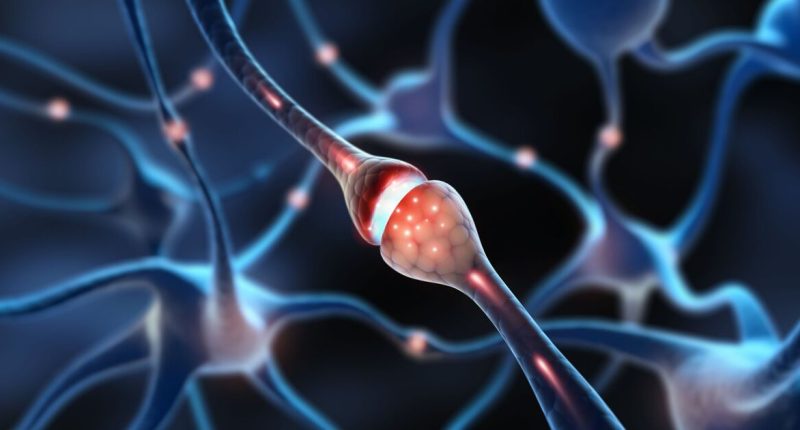Share this @internewscast.com
One in 300 of us will develop motor neurone disease in our lifetime. It is a hideous disease that robs a person of their dignity and eventually their life. MND damages the nerves in the brain and spinal cord – called motor neurones – preventing signals from reaching muscles. This causes the muscles to weaken, stiffen and eventually stop working. Over time, even the muscles used for swallowing and breathing are affected.
In the UK, around 5,000 people are living with MND at any one time. About 90% of them have the most common form: ALS (amyotrophic lateral sclerosis). There are currently only limited treatments that can slow the disease for a short time. The sheer complexity of MND means there is no effective long-term therapy. But there’s hope – we may be at a turning point.
Public awareness about the disease has increased dramatically in the last decade, thanks to the tireless efforts of figures like Rob Burrow, Kevin Sinfield and Doddie Weir. The viral Ice Bucket Challenge and campaigns like our call for increased government funding for MND research, supported by the Sunday Express, have brought MND and ALS into the spotlight.
This awareness has translated into generous public donations to the MND Association and other charities, enabling significant investment in MND research. That funding has deepened our understanding of the basic science behind the disease, including the collection of invaluable patient data – especially genomic data. This data is vital in the search for new treatments.
MND affects everyone differently, making it critical to understand the genetic factors that influence who gets the disease and how rapidly it progresses. But analysing such complex data manually is slow and challenging. For the first time, however, revolutionary advances in artificial intelligence mean researchers and innovators have the opportunity to outpace the disease.
They can use AI to unlock these vast quantities of patient data generated in the last decade at a speed that would never have been possible for scientists alone. We now have two critical components: the data and the tools to interrogate it. What’s needed is to bring together the global MND research community with cutting-edge AI innovators – and that’s where the new Longitude Prize on ALS comes in. Modelled on the historic Longitude Prize of the 18th century – which solved the centuries-old problem of determining longitude at sea – the modern version tackles a 21st century crisis: the need for an effective and long-term treatment for ALS.
In the 1700s, one in five ships was lost at sea due to poor navigation. Even great minds like Galileo and Newton couldn’t solve the problem. It was ultimately cracked by John Harrison, a self-taught clockmaker, whose marine chronometers allowed sailors to accurately determine their location.
His innovation transformed seafaring and saved lives. Similarly, the Longitude Prize on ALS aims to spark breakthroughs that could transform the treatment of MND. Over the next six years it will award £7.5million to scientists and AI experts working to identify promising drug targets that could lead to effective therapies.
Again, it’s thanks to the public that the MND Association is the principal funder of the prize, in collaboration with Nesta, the
Alan Davidson Foundation, My Name’5 Doddie Foundation and other partners around the world. This is the third modern Longitude Prize run by Challenge Works. The first focused on superbugs and the second on dementia. The initiative is especially poignant because Challenge Works’ founder Tris Dyson was diagnosed with ALS in 2023, aged just 43.
In 2026, 20 promising teams will each receive £100,000 Discovery Awards and gain access to the largest ALS patient dataset of its kind ever assembled in one place. They will use this data to identify the most promising drug targets using distinct and innovative AI tools. In 2027, 10 of these teams will move forward, each receiving £200,000 to strengthen the evidence for their therapeutic targets.
In 2028, five teams will be awarded £500,000 to further validate their findings. And finally, in 2031, one team will win the £1million grand prize for identifying the most promising treatment target for ALS. The Longitude Prize on ALS is not just about awarding money – it’s about driving innovation, accelerating progress towards finding effective treatments and giving real hope to thousands of people affected by this cruel disease.











